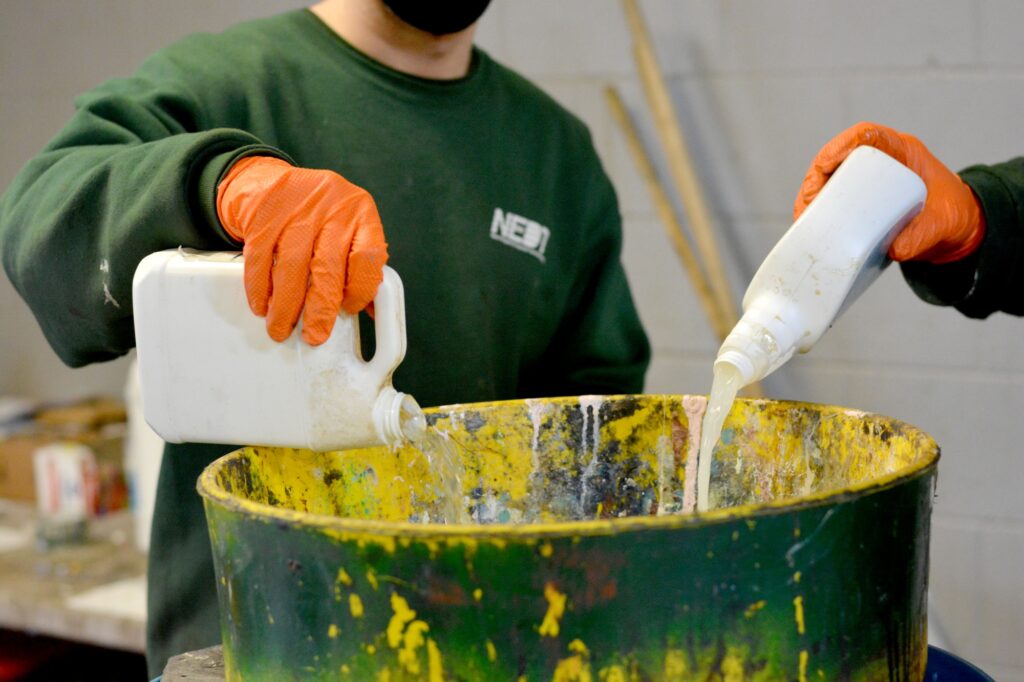When you’ve got that bottle of old chemicals or some water-soluble waste, it can be tempting to pour it into the sink to dispose of it. However, some products are hazardous to pour down the drain. From damaging your pipes to large-scale environmental effects, learn why you need to think twice before pouring something into your wastewater system, regardless of whether you’re connected to the sewer or use a septic system.
Hazardous Products You Shouldn’t Pour Down the Drain
If you pour them down the drain, certain household products can have major health, infrastructure, and environmental impacts. It’s important to think twice about what goes down the sink, especially products like:
- Adhesives & Oils: Adhesives, oil-based products, paint, and grease can clog pipes, leading to backups or even blockages.
- Corrosive Chemicals: Certain chemicals can corrode metal or plastic pipes, leading to costly replacements or municipal fines.
- Petroleum Products: From motor oil to pesticides, petroleum-based products don’t dissipate in water, causing health and environmental impacts.
- Dangerous Waste: Anything else that can risk safety and health, including medical waste, pharmaceuticals, and toxic chemicals.
Hazardous Products in Sewer vs. Septic Systems
Of course, the system to which your drain is connected can also impact both local health and possible fines and repercussions.
Sewer Systems: Public Pipes & Treatment Facilities
When you pour something down the drain when connected to the sewer system, hazardous waste can impact the shared public sewer system and the water treatment plants, both of which are maintained by your local municipality, meaning your waste can impact many people and disrupt regular functionality for hundreds of households.
Septic Systems: Groundwater & Aquifers
When you pour something down the drain connected to a household septic system, whatever is poured down the drain goes into the leach field and into the groundwater. Contaminants can potentially pollute drinking water wells and aquifers, impacting the health of your household and local environment.
Read Labels for Proper Disposal Methods
It’s important before you think about pouring something down the drain to read the label. Products are required to have certain safety and hazardous notifications on them, including proper disposal methods. This will help you make more informed decisions when it comes to not only disposal but also storage or handling requirements to avoid issues until you can dispose of it properly.
With many hazardous household products and local restrictions, we recommend checking with your county or state on best practices, such as Massachusetts being MassDEP. For residents of Massachusetts and surrounding states, the Household Hazardous Products Collection Centers of NEDT can also help you keep household products out of our water. Learn what we accept and plan your trip today!



Leave a Reply